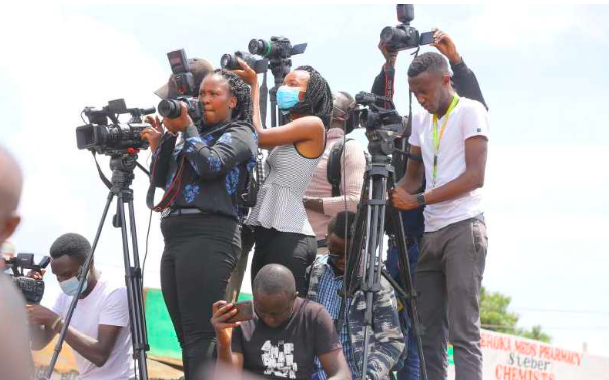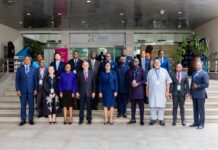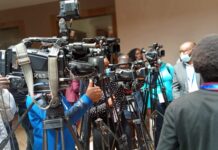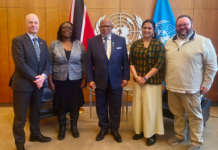By Winnie Kamau
Nairobi, Kenya: In 2024, a staggering 2.6 billion people across the globe are set to exercise their right to vote, making the role of journalists even more critical in disseminating accurate and unbiased information.
To address this alarming issue, UNESCO unveiled a new issue titled “The Role of Law Enforcement Agents: Ensuring the Safety of Journalists during Public Demonstrations and Elections.” This report not only highlighted the myriad challenges journalists face while reporting during elections but also provided valuable recommendations for governments on how to address this growing problem.
In Africa, only countries expected to go to the polls in 2024 include Algeria, Botswana, Chad, Comoros, Ghana, Mauritania, Mauritius, Mozambique, Namibia, Rwanda, Senegal, Somaliland, South Africa, South Sudan, and Tunisia.
In the heart of Washington D.C, on the crisp autumn days of November 2nd and 3rd, 2023, the world came together to commemorate the International Day to End Impunity for Crimes against Journalists. The global event was hosted at the headquarters of the Organization of American States (OAS) in a powerful demonstration of solidarity and commitment to the safety and protection of journalists worldwide.
The significance of this day harkens back to 2013 when the United Nations General Assembly adopted Resolution A/RES/68/163, proclaiming the 2nd of November as the day to end impunity for crimes against journalists.
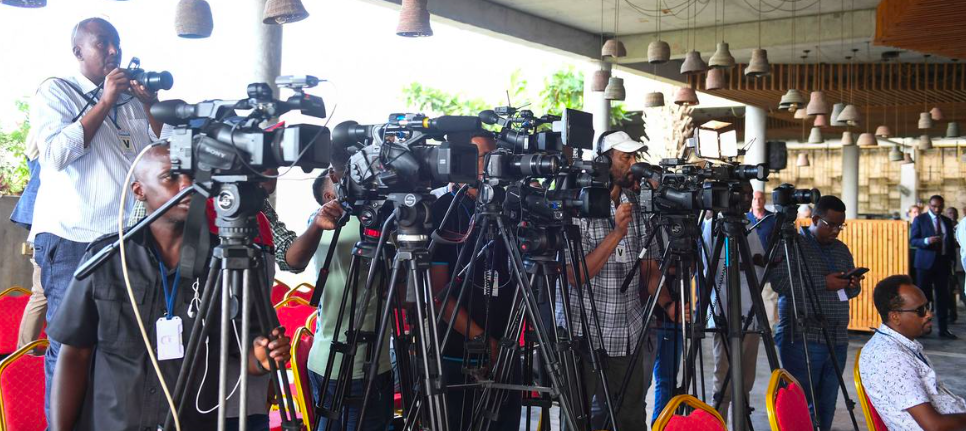
The date was chosen to honor the memory of two brave French journalists Ghislaine Dupont and Claude Verlon, who were reporting from the northern Malian town of Kidal for Radio France Internationale, who were murdered after gunmen who had abducted them on that fateful day.
The resolution stands as a firm condemnation of all attacks and violence against journalists and media workers. It calls upon Member States to take decisive actions to prevent violence against journalists and media workers and to ensure that those who commit such crimes are held accountable.
It also emphasizes the importance of providing victims with appropriate remedies and creating a safe and enabling environment for journalists to perform their work without interference.
This year’s commemoration held added significance as it marked the 25th anniversary of the establishment of the OAS Special Rapporteurship and the 30th anniversary of the United Nations Special Procedure. These specialized offices have been instrumental in promoting and safeguarding freedom of expression globally, making this event even more memorable.
The day was organized by UNESCO in partnership with the Secretary General of the Organization of American States (OAS), the Inter-American Commission on Human Rights (IACHR), and its Office of the Special Rapporteur for Freedom of Expression (RELE). Together, they were determined to emphasize the vital role journalists play in protecting democracy and ensuring that the public has access to accurate information during elections.
As the event unfolded, UNESCO released new data that highlighted a concerning trend of rising violence against journalists, particularly during election periods. Between January 2019 and Between 2006 and 2023, over 1,600 journalists have been killed around the world, with close to 9 out of 10 cases of these killings remaining judicially unresolved, according to the UNESCO Observatory of Killed Journalists. Impunity leads to more killings and is often a symptom of worsening conflict and the breakdown of law and judicial systems.
In the face of these sobering statistics, UNESCO and its partners appealed to all relevant actors around the world to protect journalists. The commitment of nations to uphold the principles enshrined in Resolution A/RES/68/163 was evident in the solidarity displayed during the global commemoration.
The resolve to end impunity for crimes against journalists and ensure their safety remained unwavering, as the world came together to honor those who risk their lives to uncover the truth and safeguard democracy.

